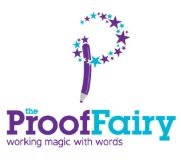Time for a guest blogger – Nick Rink is an SEO expert based in London, and in this post he explores what local SEO is and how business owners can use it to boost their website ranking and traffic.
So you’re a local business owner and you’re starting to seriously think about tapping into the full potential of the internet to gain more customers and increase your revenue. No doubt you’ve already had countless phone calls and emails from various SEO companies offering you a guarantee to get you to number 1 on Google. Maybe you’ve done a bit of your own online research and read articles or blog posts about local SEO. You may now be well informed or totally confused, but either way you’ll likely be asking yourself whether this is something you can do yourself or do you need to call in a specialist local SEO company.
 Well the short answer to “Can you do it yourself?” would be “Yes you can,” but perhaps the more important question is should you do it yourself? It’s a bit like doing your own taxes or having a crack at fixing a leaky pipe … get it wrong and it’s going to end up costing you a whole lot more than you bargained for! Local SEO does take a certain amount of knowledge and experience to get right. There are close to 200 different ranking factors to deal with and local SEO professionals will be able to stay on top of all the monthly algorithm changes that Google puts in place. For those of you still wanting to have a go at DIY SEO, here are a few pointers:
Well the short answer to “Can you do it yourself?” would be “Yes you can,” but perhaps the more important question is should you do it yourself? It’s a bit like doing your own taxes or having a crack at fixing a leaky pipe … get it wrong and it’s going to end up costing you a whole lot more than you bargained for! Local SEO does take a certain amount of knowledge and experience to get right. There are close to 200 different ranking factors to deal with and local SEO professionals will be able to stay on top of all the monthly algorithm changes that Google puts in place. For those of you still wanting to have a go at DIY SEO, here are a few pointers:
1. Get your website set up correctly
Before you get started on any type of local SEO work you need to make sure your website is technically sound. Use Google’s Webmaster Tools to highlight any major issues and submit your XML sitemap. Then set up Google Analytics so you can track your traffic and take a look at the Keyword Tool to research the keywords you’re going to target through your title tags and on-site content.
2. Google Places … er, Google + Local
This is probably the most important online property you can have, after your own website, as these are the results that Google generally shows for local searches. While it’s still officially called Google Places for Business, most of us now know it as Google+ Local. If you haven’t already done so you’ll want to claim and optimise your listing, making sure you stay within the Quality Guidelines.
3. Local citations
These are mentions of your business name, address and phone number on other sites around the web. They usually take the form of structured citations, which can be found in online directories and review sites like Qype, Yelp and TripAdvisor. With these you can generally claim your listing, add your website and email address, plus upload photos and videos. Any information you submit must be consistent across the web or else you’re liable to run into issues down the road.
Other things to focus on are building good quality content for your website and links from local and industry relevant websites. It is a blend of good on-site optimisation, quality content, citations, local links and quite a number of other factors that will help you rank well in the local search results. If you still want to go ahead and DIY your local SEO then enjoy it and best of luck. If it all seems a bit too much or you simply don’t have the time to invest in it then you could always call a professional.
__________________________________________________________________________________
Nick Rink has over 15 years’ worth of experience working with SMEs and he writes about local search, social media, the mobile web and other online marketing issues affecting local business owners. He runs the Onvizi office in London and looks after all UK clients.


